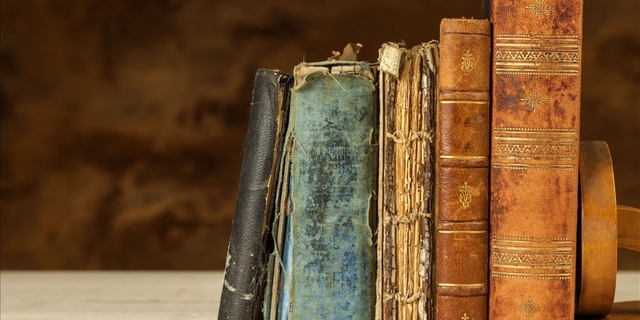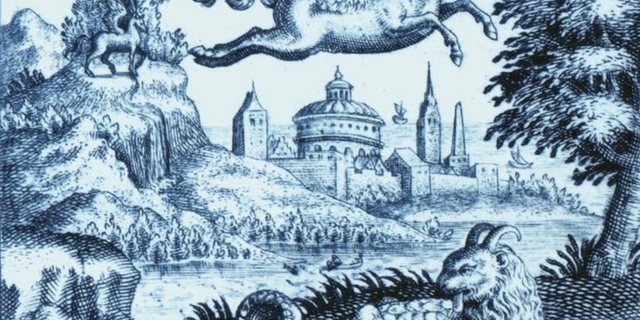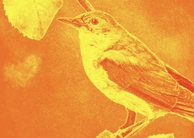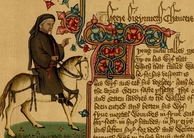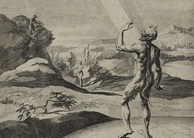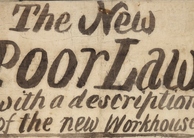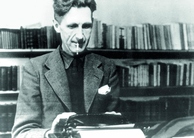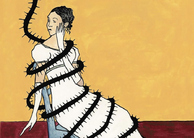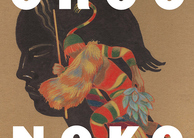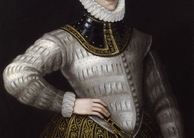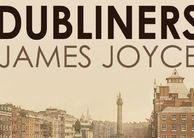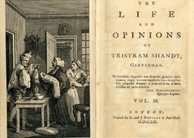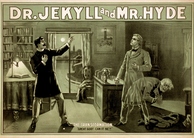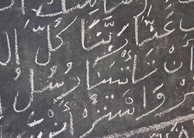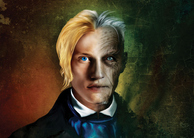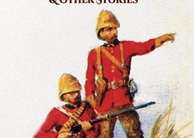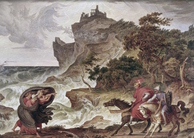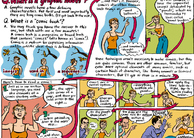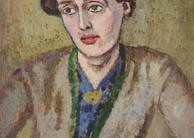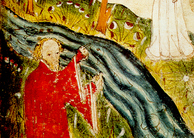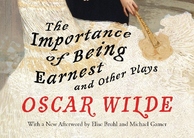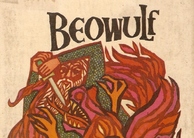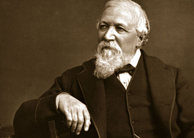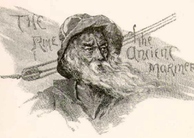|
English (tagged articles)
The keyword English is tagged in the following 44 articles.
2023, Vol. 15 No. 02
This literary analysis compares the spiritual landscape of Aldous Huxley’s Brave New World against his nonfiction work, The Perennial Philosophy. In Brave New World, Huxley’s World State appears spiritually promising. It embeds self-... Read Article »
2022, Vol. 14 No. 09
Woolfian Scholars regularly denote the moments where Woolf’s characters feel inexplicably connected and inseparable from one another as representing the spiritual and mystic beliefs of their author. I want to reframe this notion, considering... Read Article »
2022, Vol. 14 No. 02
This article explores the expression of the Gothic romance genre in the 21st century, by examining Mike Flannagan’s The Haunting of Bly Manor. Very little literature focuses on contemporary expressions of this genre. The Gothic reflects the... Read Article »
2021, Vol. 13 No. 04
The Demon-Lover functions as a significant motif in English Gothic ballad tradition, which scholar Hugh Shields articulates as a “supernatural intrusion into a narrative which is of this world” (Shields p. 107). While this intrusion... Read Article »
2021, Vol. 13 No. 04
Often thought to be a recent development of pop culture, writers have been using biting clapbacks in response to criticism since antiquity. This essay will explore how poet and scholar Sir Philip Sidney effectively manipulated poetic devices in... Read Article »
2021, Vol. 13 No. 03
In recent years, questions of racial, religious, and sexual inequalities across classic literature have left many educators and students wondering if the canon of Western works are sufficient in portraying the many diverse peoples that existed during... Read Article »
2021, Vol. 13 No. 02
This paper explores Keats’ depiction of death in “Ode to a Nightingale” and “The Eve of St. Agnes.” “Ode to a Nightingale” juxtaposes two types of death. The first kind of death is a drowsy union with nature... Read Article »
2021, Vol. 13 No. 01
Much contemporary literary criticism has been devoted to Horace Walpole’s novel, The Castle of Otranto; so, too, has much criticism been directed toward the author’s villa, Strawberry Hill. And yet the conversations surrounding... Read Article »
2021, Vol. 13 No. 01
English grammar learning is challenging but essential for English-as-a-second-language (ESL) learners. It is vital for ESL learners to develop effective learning strategies to facilitate grammar learning. The efficacy of the incorporation of a learners... Read Article »
2020, Vol. 12 No. 12
Through major works including “The Franklin’s Tale,” Troilus and Criseyde, and “Parliament of Fowls,” Chaucer illuminates the complexity of the popular writing trope of courtly love. His accounts of courtly love border... Read Article »
2020, Vol. 12 No. 12
This paper focuses on the manifestation of an unorthodox charisma in the devil figures of John Milton’s Paradise Lost and Johann Wolfgang von Goethe’s Faust: Part One. Using the respective connotations of ‘charisma’ with... Read Article »
2020, Vol. 2020 No. 1
The 19th century, a tumultuous period which saw a momentous change to a way of life, also saw the implementation of the Poor Law Amendment Act of 1834, a decisive change in England’s relationship with its poor. The local parish based poor... Read Article »
2020, Vol. 12 No. 02
In the opening of J. M. Richards’s post-war account of suburbia, The Castles on the Ground, the author's commentary is unusually sympathetic to a phenomenon that throughout the twentieth-century had either been critically neglected or judged... Read Article »
2019, Vol. 11 No. 01
Until the outbreak of civil war, the United States would continually try and fail to subdue the existential threat of slavery, with each attempt exacerbating the sectional tensions between slave and free states. In 1830, Massachusetts Senator Daniel... Read Article »
2017, Vol. 9 No. 10
Empirical psychology first emerged as a scientific discipline during the eighteenth century when it was launched into the academic realm by being taught in universities, appearing as chapters in philosophy manuals, and debuting as the topic of scientific... Read Article »
2017, Vol. 9 No. 05
Aphra Behn’s Oroonoko offers a complex representation of the semiotic and socio-political meaning of seventeenth-century torture and death and the intersectional manner in which physical agony coincides with authoritative colonial politics... Read Article »
2017, Vol. 9 No. 03
Anyone in pursuit of knowledge is bound to encounter sex somewhere along the way. In the early 19th century, a period during which sex was unspeakable, fiction writers developed a distinct penchant for the unknown.[2] Mary Shelley’s Frankenstein... Read Article »
2017, Vol. 9 No. 02
First published in 1591 but thought to be composed sometime during the previous decade, Sir Philip Sidney’s Astrophil and Stella recounts the evolution of the relationship between the fictional, titular characters primarily from young Astrophil... Read Article »
2017, Vol. 9 No. 01
When James Joyce rewrote “The Sisters,” intending it to serve as an introduction to the whole of Dubliners, he altered the first line of the story with much significance: “There was no hope for him this time” (19)[1]. As... Read Article »
2017, Vol. 9 No. 01
The literature of the 18th century includes parodies, satires, and denunciations; however, the role of sentimentality usually comes second when discussing the literary movements of the century. The author of The Life and Opinions of Tristram Shandy... Read Article »
2016, Vol. 8 No. 11
Robert Louis Stevenson typifies an anxiety shared by many prolific Victorian writers: that God will disappear as human psychology is readily researched and understood. Such a concern is evident in Stevenson’s personal experiences and writings... Read Article »
2016, Vol. 8 No. 10
Pride and Prejudice, the work of nineteenth century novelist Jane Austen, has been celebrated for over two-hundred years since its first publication. It has been adapted, reinvented and re-imagined over and over again to the delight of both loyal... Read Article »
2016, Vol. 8 No. 10
This essay first explores how Romantic poets William Wordsworth and Percy Shelley invoke the medium of language, specifically poetic language, to opine on the relationship between the reader’s sense experience and freedom. Subsequently, this... Read Article »
2015, Vol. 6 No. 1
In Jordan, a state renowned for medical tourism, all physicians are proficient in English because medical classes are taught in English, indicating that English, rather than Jordan's official language of Arabic, is the prestige language of Jordanian... Read Article »
2015, Vol. 7 No. 09
Wordsworth’s “Tintern Abbey” takes on an abundance of ideas regarding nature’s ability to preserve one’s memories as well as past and present perceptions. Wordsworth conveys his experiences with nature to readers through... Read Article »
2015, Vol. 7 No. 09
In Media Representations and the Global Imagination, Orgad (2012) addresses the division between content and interpretative analyses of media representations in critical theory research (36). This paper attempts a marriage of structural and cultural... Read Article »
2015, Vol. 7 No. 04
Oscar Wilde’s The Picture of Dorian Gray, Bram Stoker’s Dracula, and Robert Louis Stevenson’s Strange Case of Dr. Jekyll and Mr. Hyde are all "Democratic Age"1 novels that evoke a theme of appearance versus reality. In Wilde&rsquo... Read Article »
2015, Vol. 7 No. 03
“The Man Who Would Be King” (1888)[1] is one of Rudyard Kipling’s most well known and highly acclaimed short stories. Michael Caine, Sean Connery, and Christopher Plummer starred in John Huston’s classic film adaptation (... Read Article »
2015, Vol. 7 No. 03
Anti-semitism was a prevailing cultural sentiment in Europe, particularly in Great Britain, during the period when some of English literature's most celebrated figures, including Marlowe, Shakespeare, Donne, and Chaucer, penned their famous works... Read Article »
2014, Vol. 6 No. 11
This paper looks at the poet John Donne’s method of incorporating sexual imagery into religious and spiritual contexts. The main features of Donne’s technique arise from his notion of ecstasy. Donne’s ecstasy describes how the... Read Article »
2014, Vol. 6 No. 08
Graphic novels have become increasingly popular in the classroom as a means to engage English language learners (ELL) in new ways (Christensen, 2007). The accessible and diverse content of graphic novels can inspire critical discussions by encouraging... Read Article »
2014, Vol. 6 No. 04
When examining the works of both George Eliot and Virginia Woolf, many critics are quick to assess the credibility and quality of characters based on how they react to the external experiences they are faced with in their imaginary worlds. However... Read Article »
2013, Vol. 5 No. 08
Patience, the third poem in Cotton Nero A.x., tells the story of the Old Testament prophet Jonah, placing the narrative within the context of the virtue “pacience” (ll. 1, 531). This, however, is the crux: how much of Patience is simple... Read Article »
2012, Vol. 4 No. 09
This essay explores the roles of women in Beowulf in a contextual assessment. It is often an incorrect assumption that women within Beowulf and Anglo-Saxon culture are subservient to a patriarchal culture that places little to no value on them.... Read Article »
2012, Vol. 4 No. 02
The English language is constantly changing. More and more editions of the Webster’s Dictionary are being published every decade, more vernacular is being considered as “standard English,” and more and more leniency is being advocated... Read Article »
2011, Vol. 3 No. 11
“As the House of Lords has existed for about six centuries without reform, some alterations have become necessary in order to bring it into conformity with the changed institutions by which it is surrounded.” – Lord Rosebery, 1884... Read Article »
2011, Vol. 3 No. 06
Oscar Wilde's The Importance of Being Earnest and Henry James' Daisy Miller seemingly differ greatly in style. The forms--play and nouvelle--are of course different. Earnest is 'one of the great comedies in the English language' (Cave 419). Daisy... Read Article »
2010, Vol. 2 No. 10
Is not consistent in maintaining distinctions between often confused words. Maintains distinctions for these often confused words: alright/all right, disinterested/uninterested, affect/effect, but not for these: anxious/eager, nauseous/nauseated... Read Article »
2010, Vol. 2 No. 10
Remarks in the introductory material indicate that the philosophy of the work is prescriptive. For example, in the introductory article “On Usage, Purism, and Pedantry,” Follett says, “Skill in expression consists in nothing else... Read Article »
2010, Vol. 2 No. 10
Female writers of the Eighteenth Century often focused on the role of the female imagination in novel writing, poetry composition, and as an outlet for temporarily escaping a harsh world. In Maria, or The Wrongs of Woman, Mary Wollstonecraft... Read Article »
2010, Vol. 2 No. 07
The introduction of Christianity to England in 597 established a structured, uniform faith among a people accustomed to different branches and pockets of polytheistic paganism. Over the next seventy-five years, the burgeoning country quickly grew... Read Article »
2010, Vol. 2 No. 04
The first line of Plautus’ epitaph reads: “Postquam est mortem aptus Plautus, comoedia luget, scaena est deserta,” or roughly translated, “since Plautus is dead, comedy mourns, deserted is the stage” (Garrod, 531).&... Read Article »
2010, Vol. 2 No. 02
Robert Browning’s two poems, “Porphyria’s Lover” and “My Last Duchess,” have some striking similarities. Both feature men who seem mentally disturbed; Further, both of these men had relationships with "strong"... Read Article »
2010, Vol. 2 No. 01
Jean-Baptiste Clamence in Albert Camus's The Fall and the mysterious Ancient Mariner in Samuel Taylor Coleridge’s Rime of the Ancient Mariner each experience something that radically shifts his worldview and his view of himself. Arrogant and... Read Article »
Expedited Article Review
Submit an article and get a decision fast.
If you need a fast decision, INQUIRIES Journal offers expedited processing of your submission for a small fee. Depending on the expedited review option you choose, you can receive a decision in as few as 5-days.
In addition to a shorter review period, the fee supports the journal's continued operation and open-access publishing model. Standard submissions are always free. Submit Now » - Submit an Article to Inquiries Journal -
|




